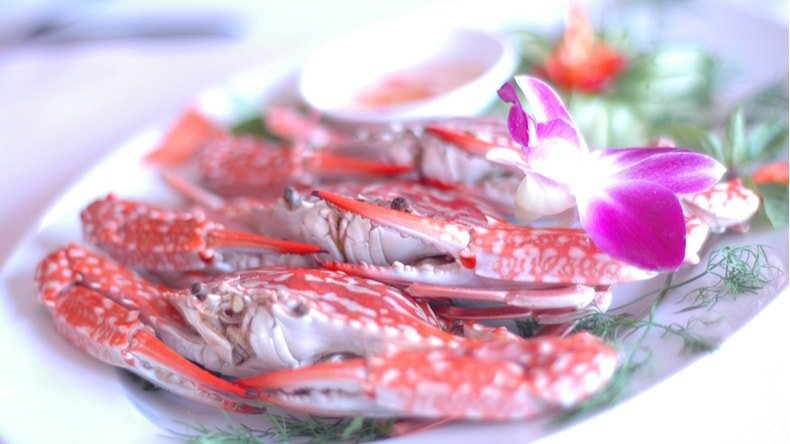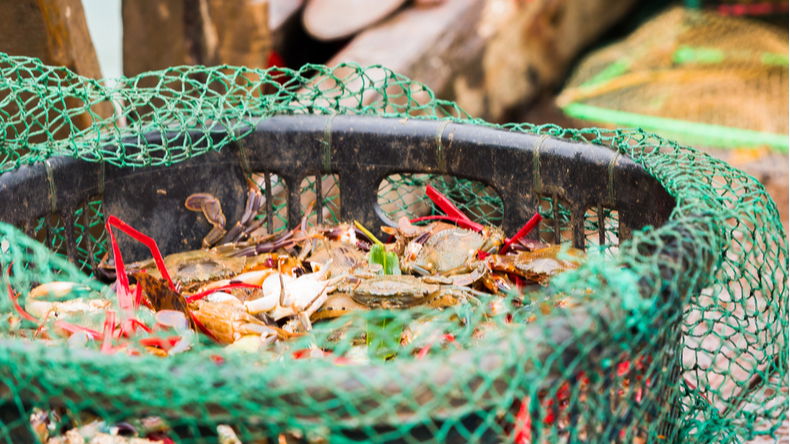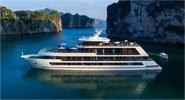Food Safety: 5 Tips for Safe Dining of Seafood in Halong Bay
Besides being famous for its beautiful bay, beaches and caves, Halong Bay also offers travelers great seafood! There’s a plethora of fresh seafood to choose from, and with great seafood comes great responsibility. We came up with 5 tips for safe dining in Halong Bay.

- Avoid eating raw seafood in general.
- Never eat raw crab.
- Choose fresh seafood, especially one that has shells, contain much higher level of bacteria or poisons.
- Avoid drinking excessive beer while eating seafood.
- Avoid having fruits/tea after having seafood.
1. Avoid consuming raw seafood
Raw seafood may be alluring, but it’s important to be cautious. If you choose to indulge, limit your intake. Raw seafood can harbor Vibrio parahaemolyticus bacteria, which may lead to stomach cramps, diarrhea, and various other gastrointestinal issues. As a general guideline, refrain from dining at restaurants that look suspicious, particularly if they lack patrons.
2. Never consume raw crab
Dining on crab in Halong Bay poses the risk of contracting the Paragonimus westermani parasite, also known as the ‘Oriental Lung Fluke.’ This parasite can cause intense abdominal discomfort, diarrhea, and could potentially impact your respiratory system, leading to severe consequences. Ensure that crab is thoroughly cooked, ideally for 20 to 30 minutes, before consumption. Avoid establishments that appear questionable, especially those without customers.
 Fresh crabs available at a local market in Halong.
Fresh crabs available at a local market in Halong.
3. Seafood shopping experience
Halong Bay features many vibrant markets where purchasing fresh seafood can be an exhilarating experience. You have the option to prepare it yourself or bring it to your hotel and have the chef prepare a delicious meal. When buying seafood, ensure that it is still alive at the time of purchase, particularly with shellfish, which may harbor higher levels of toxins and bacteria.
4. Moderation with alcohol consumption
Excessive alcohol consumption in conjunction with seafood may increase the risk of gout or arthritis. Exercise caution and restrict your alcohol intake while savoring your seafood feast.
5. Wait before consuming fruit or tea
Eating fruit immediately after seafood may prevent the body from effectively absorbing the proteins from the meal due to the acidity in fruits. Similarly, the tannins found in tea can interact with proteins and calcium in seafood, resulting in digestive distress, including abdominal pain and vomiting. It’s wise to wait a few hours before consuming fruit or tea after enjoying a seafood dish.
Recommended reading: Seafood Safety: What Consumers Need to Know (By the University of Rhode Island, Kingston)













